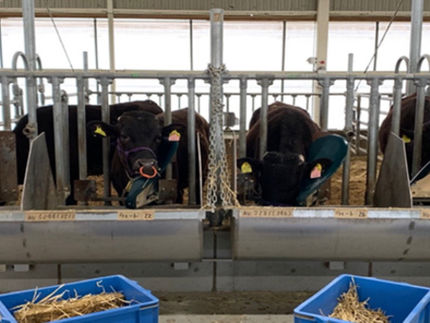Microorganisms provide essential vitamins for legumes
Natural microorganisms can enrich plant-based foods such as yellow peas with vitamin B12 and other vitamins through fermentation
Advertisement
A plant-based diet is considered healthy and sustainable. The new Swiss food pyramid also promotes this. Until now, a purely plant-based diet did not naturally contain the vital vitamin B12. ZHAW researchers at the Institute of Food and Beverage Innovation have found a solution to this problem and are using microorganisms to enrich plant-based raw materials with vitamin B12. They are relying on fermentation, an ancient method that originally had the primary purpose of preserving food. However, it can generally enhance food by allowing microorganisms to produce desirable substances, such as vitamins, and break down undesirable substances, such as FODMAPs (fermentable oligo-, di-, monosaccharides and polyols).
Fermentation produces vitamin B12 and folic acid
In the CREATE (funCtional micRoorganisms in a mEAT reduced diEt) project, the researchers took yellow peas as the starting material and tested the ability of natural microorganisms to produce the desired vitamin B12 and folic acid directly in yellow pea flour. Folic acid is closely linked to vitamin B12 in the metabolism and is often limited in the daily diet. This is why both substances are usually present together in food supplements. "We have identified microorganisms that produce the vitamins in promising quantities during the fermentation process," says ZHAW researcher Susanne Miescher Schwenninger. This means that vitamins no longer need to be added to the resulting product and - as show cases demonstrate - it is suitable for pasta or snacks.
Microorganisms make yellow peas more digestible
Unprocessed pulses such as yellow peas are rich in so-called FODMAPs. This group of carbohydrates and sugar alcohols can lead to mild digestive problems. In people with chronic inflammatory bowel disease, irritable bowel syndrome or functional gastrointestinal complaints, it can exacerbate symptoms. The ZHAW researchers therefore also looked for microorganisms that can break down FODMAPs - with success. "Our results with yellow peas were so promising that we now want to test the degradation in other legumes as well," says Miescher Schwenninger.
The ZHAW has a collection of over 14,000 strains of natural microorganisms. For the project with yellow peas, around 500 strains were tested for their functional properties - forming vitamins and breaking down FODMAPs. The project is a collaboration between three ZHAW research groups: Food Biotechnology, Food Chemistry and Food Technology. Other partners are the Laboratory for Food Biochemistry at ETH Zurich and FoodTech Startup Planted. The project was financed by Gebert Rüf Stiftung as part of the "Microbials" funding program.
Note: This article has been translated using a computer system without human intervention. LUMITOS offers these automatic translations to present a wider range of current news. Since this article has been translated with automatic translation, it is possible that it contains errors in vocabulary, syntax or grammar. The original article in German can be found here.





























































